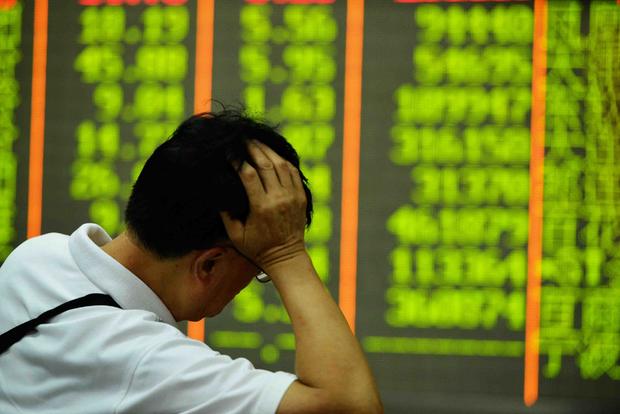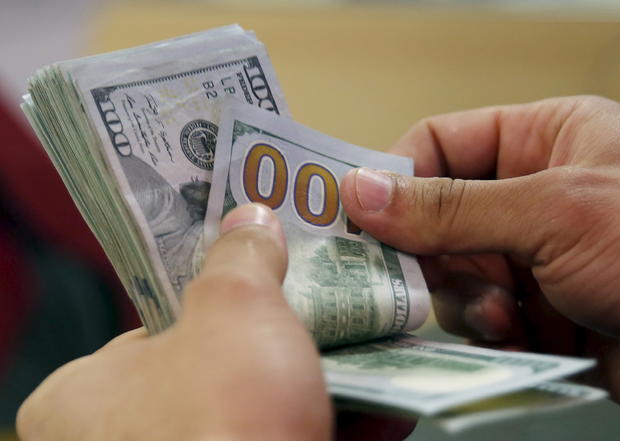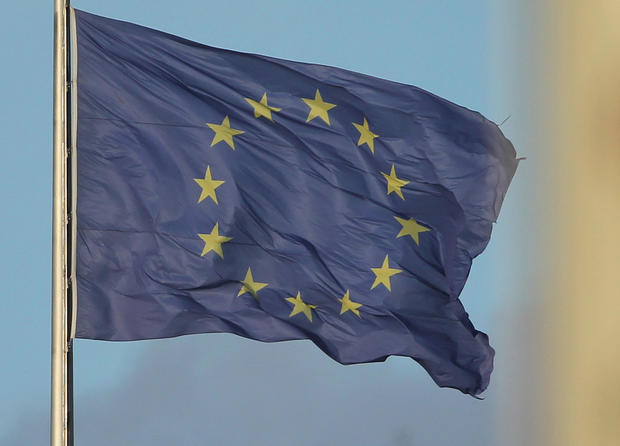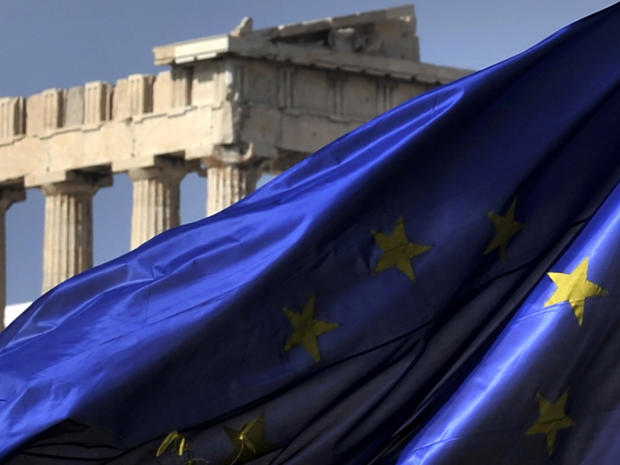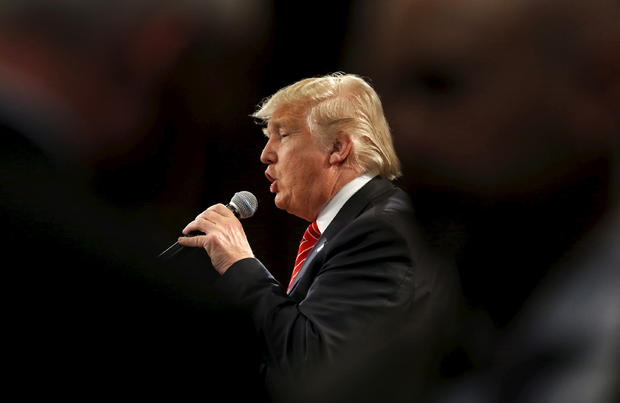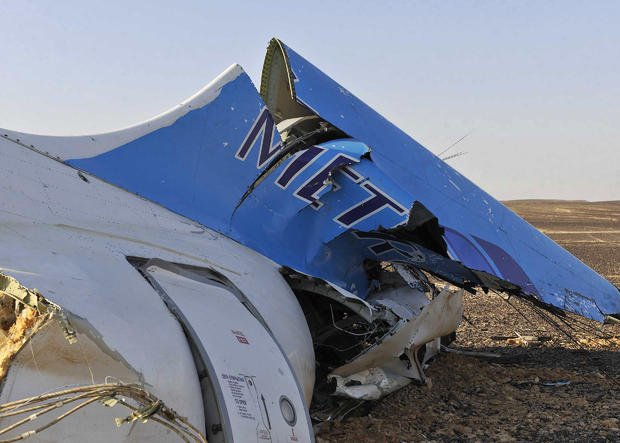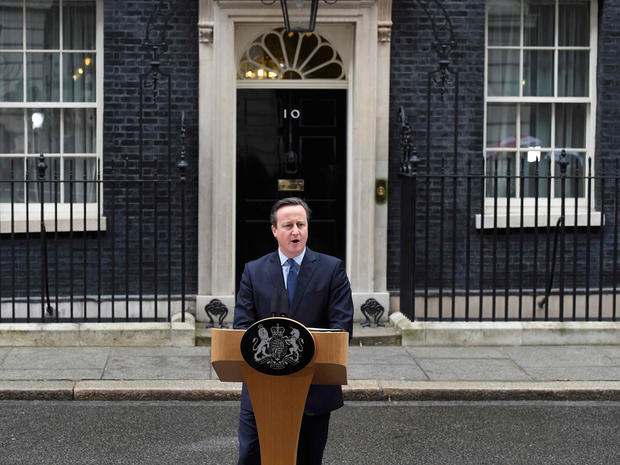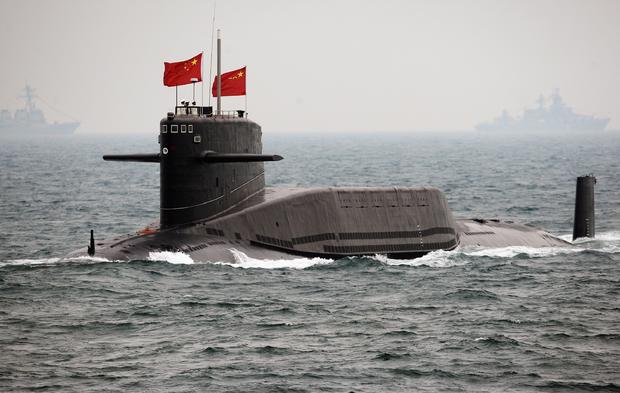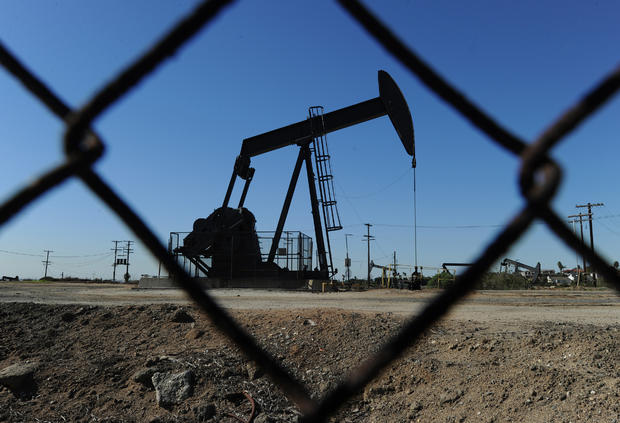Would a President Trump damage the global economy?
Forget a possible "Brexit" or an armed conflict in the South China Sea -- according to one influential media outfit, a Donald Trump White House win would rank higher on its list of the top 10 global risks.
The Economist Intelligence Unit (EIU), part of the same company that publishes The Economist magazine, has laid out what it sees as the world's top risks this year. On a scale of 0-25 scale (with a higher number denoting a greater level of risk),Trump becoming president rates a 12, tied with the danger that jihadi terrorism could destabilize the global economy.
Why did Trump make the list, and what other risks are lurking? Click ahead for a look at the top 10 risks, as ranked by the EIU.
1. China experiences a hard landing (Score: 20)
The Economist Intelligence Unit, which analyzes issues that affect countries, regions and industries, ranks a China meltdown as a "high probability, very high impact" risk, giving it a score of 20 out of 25.
The authors write, "If China's economy slows by more than we currently expect, it will further feed the ongoing global commodity price slump." That would have a major impact on emerging markets, particularly nations that have benefited from the booming demand for commodities fueled by China's explosive growth.
The report also touched on the possible effect of an economic slowdown on some of China's trading partners. "Given the growing dependence of Western manufacturers and retailers on demand in China and other emerging markets, a prolonged deceleration in growth there would have a severe knock-on effect across the EU and the U.S. -- far more than would have been the case in earlier decades."
2. Russia's interventions in Ukraine and Syria precede a new "cold war" (Score: 16)
The EIU ranks this as a "high probability, high impact" risk, giving it a score of 16 out of 25.
"Russian air strikes in Syria, and the shooting down of a Russian plane over the country by a Turkish F-16 in November, as well as its earlier backing for the separatist war in Ukraine, have plunged East-West relations into their chilliest state since the end of the cold war," the EIU writes.
The assessment also highlights Russia's 2014 annexation of Crimea, which led to increased tensions in the region and to international sanctions, as another geopolitical risk.
3. Currency volatility results in an emerging market debt crisis (Score: 16)
The EIU ranks this as a "high probability, high impact" risk, giving it a score of 16 out of 25.
"The countries most vulnerable to the shifting monetary cycle will be those with wide fiscal and current-account deficits; those viewed as lacking political and policy credibility; and/or those heavily reliant on commodity exports," the authors write, reflecting on the volatility that has whipsawed global markets this year amid China's economic slowdown.
"Any rolling emerging-market debt crisis would cause considerable panic across the global capital markets, and may require governments in several economies to step in to shield their banks from the fallout -- risking a repeat of the banking crises witnessed in Europe at the start of this decade."
4. European Union begins to fracture (Score: 15)
The EIU ranks this as a "moderate probability, very high impact" risk, giving it a score of 15 out of 25.
"The fluctuating eurozone debt crisis, prolonged recession, deep differences over the response to the influx of (mostly Syrian) refugees, and the fallout from the terrorist attacks in Paris has raised doubts over the cohesion of the EU," the authors write.
The analysis also touches on the possible end of the so-called Schengen agreement, which mandates open borders between European Union countries, and the potential economic impact. "In the event that the EU began to fracture and land borders reimposed, trade flows and economic co-operation would be hindered, harming growth in the world's largest single trading block."
5. "Grexit" is followed by a eurozone break-up (Score: 15)
The EIU ranks this as a "moderate probability, very high impact" risk, giving it a score of 15 out of 25.
Greece and its economy have been ailing for years, kept afloat by bailouts in exchange for harsh austerity measures. As the EIU writes, "The country's future within the eurozone remains at risk."
The EIU offers a grim assessment of countries that could leave the eurozone under duress, predicting they "would suffer large devaluations and be unable to service euro-denominated debts. In turn, banks would suffer huge losses in their sovereign bond portfolios, resulting in major disruption to the global financial system and plunging the world economy into recession."
6. Donald Trump wins the U.S. presidential election (Score: 12)
The EIU ranks this as a "moderate probability, high impact" risk, giving it a score of 12 out of 25.
So why did Trump -- the only person on the risk list -- get picked by the EIU?
"In the event of a Trump victory, his hostile attitude to free trade, and alienation of Mexico and China in particular, could escalate rapidly into a trade war....," according to the analysis. "His militaristic tendencies towards the Middle East (and ban on all Muslim travel to the U.S.) would be a potent recruitment tool for jihadi groups, increasing their threat both within the region and beyond."
The EIU does not forecast a Trump victory over Hillary Rodham Clinton, should she be the Democratic nominee.
Still, the report added, "There are risks to this forecast, especially in the event of a terrorist attack on U.S. soil or a sudden economic downturn. It is worth noting that the innate hostility within the Republican hierarchy towards Mr. Trump, combined with the inevitable virulent Democratic opposition, will see many of his more radical policies blocked in Congress -- albeit such internal bickering will also undermine the coherence of domestic and foreign policymaking."
7. Rising threat of jihadi terrorism destabilizes the global economy (Score: 12)
The EIU ranks this as a "moderate probability, high impact" risk, giving it a score of 12 out of 25.
"The threat of jihadi terrorism has moved towards the top of policymakers' policy agenda after a series of devastating attacks in Lebanon, Turkey, Egypt (via the bringing down of a Russian airliner), France and Indonesia in recent months," the authors write.
The EIU also highlights how terrorism could affect global markets. "Should the current spiral of terrorist attacks and reprisals escalate, it would no doubt begin to dent consumer and business confidence, which in turn could threaten to end the five-year bull run on the U.S. and European stockmarkets."
8. U.K. votes to leave the EU (Score: 8)
The EIU ranks this as a "low probability, high impact" risk, giving it a score of 8 out of 25.
In June, British voters will head to the polls to decide whether the United Kingdom should remain in the European Union. Prime Minister David Cameron, following negotiations with other EU leaders last month, is pushing for Britain to stay in the 28-member political and economic bloc. But others, including London Mayor Boris Johnson, favor a so-called "Brexit."
"If Britain did leave the EU it would have negative ramifications for the U.K. -- still the fifth-biggest economy in the world, and whose exporters would struggle in the face of regulatory and tariff uncertainty, and whose position as a leading global financial services hub would be imperiled," the EIU writes. "However, it would also harm the EU itself, given that the UK is one of the few relatively fast-growing economies in Europe, and has also been a leading proponent of trade and services liberalization."
9. Chinese expansionism spurs armed conflict in the South China Sea (Score: 8)
The EIU ranks this as a "low probability, high impact" risk, giving it a score of 8 out of 25.
China has been irritating some of its neighbors by literally building islands in the South China Sea, raising tensions in the geopolitically important region.
"With China already mired in multiple island disputes elsewhere, including with South Korea and Japan, there is a risk that China's growing assertiveness will lead to a military build-up in the region, which in turn raises the danger of an accident or miscalculation that might lead to a wider military escalation," the EIU authors write.
"Any worsening of the row could seriously undermine intra-regional economic ties, and potentially interrupt global trade flows and simultaneously depress global economic sentiment more broadly," the risk assessment concludes.
10. Collapsing energy sector investment causes a shock to global oil prices (Score: 4)
The EIU ranks this as a "very low probability, high impact" risk, giving it a score of 4 out of 25.
Energy companies have responded to falling oil prices by laying off thousands and putting some exploration projects on ice.
The EIU writes, "The response of the world's oil companies to lower oil prices should raise concerns about the long-term impact on future energy supplies."
But it sees the risk of an oil price shock as low. "However, the volatile geopolitical environment in the Middle East and eastern Europe, and the longer-term impact of a curtailing of investment in the sector, provide upside risk."

